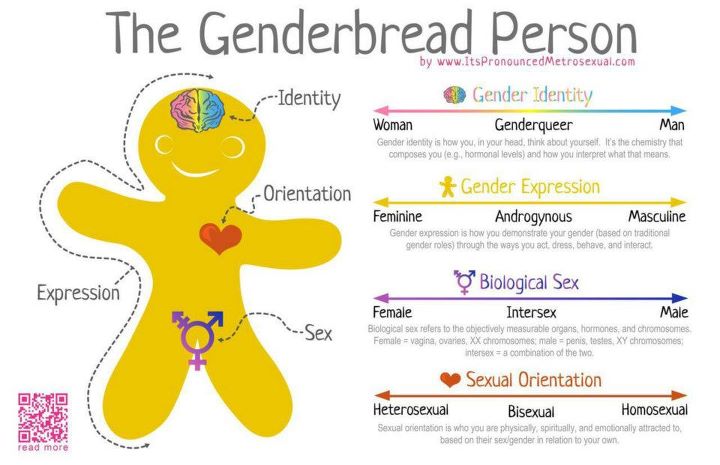Gay Mens Language
Who Sounds Gay? | Op-Docs | The New York Times
 Play video
Play video"This short documentary explores the reasons that some men sound stereotypically gay, whether they are or not."
Gendered Language in "Beauty and the Beast"
The character LeFou in "Beauty and the Beast" recently caused some discussion about sexuality especially in a children's movie. LeFou is Gaston's sidekick and is portrayed as gay in the movie. Although there are no major changes in the character from the original movie, people are unhappy with Disney for having a gay character in the movie. Children watching the movie won't even notice the comments, language, or actions that are made or think twice about seeing two men dancing together. The image of the Beast and Gaston as manly and tough using so called man speech is seen as appropriate but LeFou dancing with another man or saying which team he prefers is seen as not okay for a man and has roots in socialization. Disney and other companies are trying to erase these and other stereotypes about gender and sexuality. But there will always be those who are upset and protest something that goes against the "standard norm" as they see it. [Published on 03-20-2017]
Shameless: Mickey and Gender Expectations
These photos are from multiple scenes found in the TV series Shameless. The photos involve a character named Mickey Milkovich, a troubled, poor teenager who radiates the “tough guy” and delinquent persona but also happens to be gay. The quotes on the left demonstrate Mickey’s attempt in hiding his sexuality through harsh, derogatory language that is often associated with men. Girls are expected to show polite, clean language while boys can often get away with obscene language due to the ideologies involving expectations of how women and men should speak. These ideologies are socially constructed based on gender stereotypes and are reinforced through socialization. Boys are socialized to assert dominance and stray away from emotion that is typically associated with women, which is what is being displayed in these images. Mickey initially hides behind these language ideologies that are rooted in a largely heteronormative and male hegemonic society due to the fear of intolerance within society and of challenging these ideologies to ultimately lose the masculine, “tough guy” persona he is expected to portray. However, the photos on the right show, although at times still obscene in language use, a changed Mickey that eventually speaks out against these ideologies through publicly coming out as gay with his boyfriend, Ian.
"That's Not How Gay Men Talk!"
 Play video
Play videoThis clip of the television series, "New Girl", indexes language ideologies regarding perceptions of how gay men should speak. At the end of the clip, Jess informs Nick, who is pretending to be gay, that his speech was incongruent with how gay men speak. This indexes the language ideology that there are a believed set of speech qualities that all gay men possess.
Response to "What it Means to Sound Gay" (LanguageLog)
Reed professor Sameer ud Dowla Khan's open letter response to NPR interview with filmmaker and speech pathologist from film project "Do I sound gay?" (transcript of interview found at link). Sameer describes how linguistic features do not necessarily link directly to social category (as is seen in indexical models) to problematize the concept of "natural"-ness in speech. (Compare with research done by Gaudio, Rudolph. 1994. Sounding gay: pitch properties in the speech of gay and straight men; especially re:criticisms of other studies made in introduction pp. 34-41). [Published on 07-10-2015]
Philippine "Gay Lingo"
The following quote from the Bourdieu reading reminded me of Swardspeak (or Bekimon), an argot/slang used by queer communities in the Philippines (where I was born and raised):
"it is not space which defines language but language which defines its space" (44)
(Citation: Bourdieu, Pierre. 1991. Language and Symbolic Power.)
Swardspeak has indeed created a distinct space for gay communities in the Philippines, helping them resist cultural assimilation. The linked Wikipedia article has more information as well as great examples of Swardspeak constructions.
Here's a clip of how it sounds. It's from a hit talk show; the host, Vice Ganda, a queer comedian/TV personality, makes his guests reenact a scene from their movie in standard Tagalog and then in Swardspeak. It's mostly in Tagalog, but I think it's pretty easy to tell how different Swardspeak is. https://www.youtube.com/watch?v=dfZ91K2MS6g
Lexicon Valley: What does it mean to sound gay?
A Lexicon Valley episode on sounding gay, with Benjamin Munson. [Published on 12-01-2014]
Sounding gay, punk, or jock: What language says about your social group
Sociolinguist Doug Bigham discusses the use of linguistic resources in the construction of style, focusing on the construction of a gay style. [Published on 11-24-2014]
Second City: Sassy Gay Friend
 Play video
Play videoa humor sketch from the Second City Network's series "Sassy Gay Friend." In this video, Sassy Gay Friend intervenes in Romeo and Juliet.
NPR: The Lost Gay Language of Britain's 60s
A 2003 interview with linguist Paul Baker about his book on Polari, a "secret" code used by gay men in the U.K. in the 1960s.
Landover Baptist Children's Hospital Homosexual Reparative Ward
Landover Baptist Church's post that promotes the stigmatization of how some gay men speak.
Genderbread Person, V.1
 (Enlarge image)
(Enlarge image)Verson 1 of the Genderbreak person outling the four continua that make up one's gendered self: gender identity, sexual orientation, biological sex, and gender presentation. From www.itspronouncedmetrosexual.com